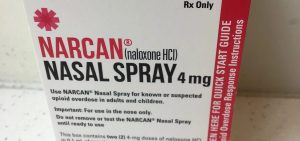News
Drug policy reform group sues the board responsible for spending half of Ohio’s opioid settlement money
By: Jo Ingles | Statehouse News Bureau
Posted on:
COLUMBUS, Ohio (Statehouse News Bureau) — A drug policy reform group said the foundation set up by the state to spend more than $400 million in opioid settlement money on substance use treatment programs isn’t being transparent about how it will do that.

The OneOhio Recovery Foundation was set up by the state in 2020 to pay for substance use recovery, treatment, and prevention programs. Just over half of the $808 million settlement will go to the OneOhio Recovery Foundation for 18 years. Local governments get 30% of the settlement, and the state gets 15%.
Dennis Cauchon, president of Harm Reduction Ohio, said the OneOhio Recovery Foundation Board isn’t following the state’s open meetings law, and while he said he thinks the 29 members now on the board mean well, this new bureaucratic entity could lead to future problems.
“I say preschedule the indictments because in year eleven, if you’ve got $100 million to spend in a year, don’t have to follow ethics law, you can spend on whatever you want,” Cauchon said. “It’s a formula for cronyism written all over it.”
Cauchon said he’s also requested documents from the board that haven’t been provided.
Cauchon said he’s concerned about the makeup of the board, which is composed of appointees of Gov. Mike DeWine, state lawmakers, and local government leaders, saying it’s important to include people with treatment and recovery program experience.
Cauchon cites as an example the board’s decision to hire an Oklahoma-based IT provider that works extensively with governments to contract with a public relations firm. The board voted in July to hire TrustDigital for $10,000 a month. He called that decision “offensive.”
“The combination of people in this case needs to include people who have suffered from opioids, the reason this money exists, and they have essentially been excluded entirely,” Cauchon said. “If you don’t know the population and you don’t know the issue, you can’t spend a half billion dollars wisely.”
A spokesman for DeWine said the OneOhio Recovery Foundation is a private non-profit organization and also said in a statement: “The OneOhio Recovery Foundation was set up so that opioid litigation settlement proceeds could benefit future generations. While our office is not a party to the lawsuit, we believe that the OneOhio Recovery Foundation has provided significant transparency to date to the public.”
A request for comment from Benesch, Friedlander, Coplan & Aronoff, the law firm working with the OneOhio Recovery Foundation, did not receive a response.
9(MDU1ODUxOTA3MDE2MDQwNjY2NjEyM2Q3ZA000))

